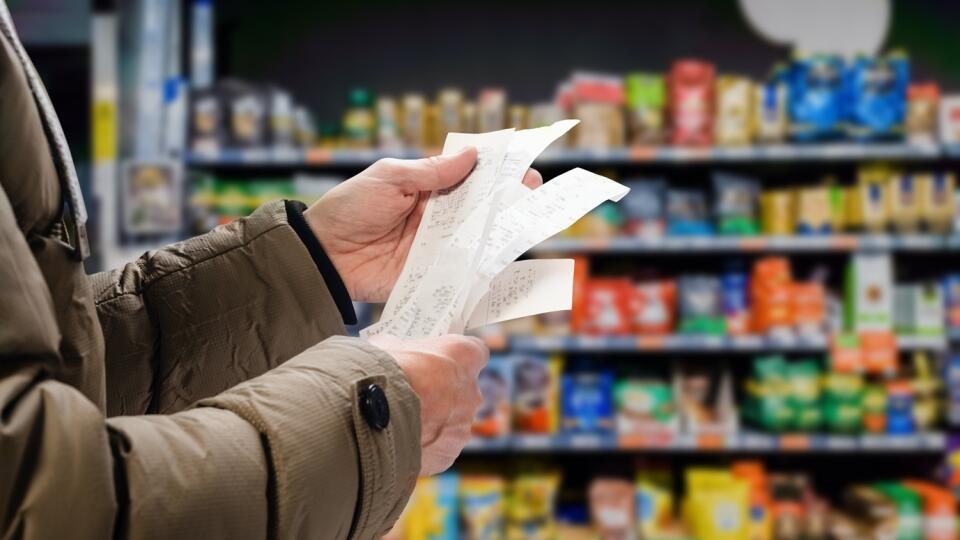It is clear that Slovakia can’t go cold turkey on Russian gas in the near future. Our gas consumption is on the decline, but it is still above average within Europe. In 2020, 70% of natural gas used in the country originated from Russia.
The European Union is talking about independence from Russian gas by 2027, however, some experts think Vladimir Putin’s, increasing aggression will make the EU and Slovakia speed up the process.
The usage of natural gas has been on the decline since the 2008 financial crash and the following reduction in industrial performance. The move towards renewable sources of energy has also been an important factor.
If Russia were to suddenly cut us off, there’s no crisis scenario in place. 94% of Slovak households use gas, and the industry uses more than 40% of the total gas consumption. Import of liquified natural gas from the US and other countries could be one solution. The nearly finished gas pipeline that will connect Slovakia with the Nordic countries could be another.
For now, Putin is still pressing the EU countries to pay for the gas in roubles. The EU strongly opposes this proposal.
This weekend, Minister of Economy, Richard Sulík, said that Slovakia can’t afford such an uncompromising attitude and if necessary, he’d be willing to pay in roubles. His stance met with strong opposition from members of the OĽaNO party, who claimed that Russian media used his statement for Russian propaganda.
Shortly after, the Minister of Economy made a U-turn and declared that Slovakia will after all tow the EU line and pay in euros. Prime Minister Eduard Heger echoed his statement.
Russian coal: Sulík also said that the import ban on Russian coal poses no danger to Slovakia. Košice steelworks U. S. Steel said they respect the ban, and it shouldn’t impact their production.
Inflation is hitting the food market while the state remains idle
Consumer inflation has reached 9% and has a devastating effect on the wallets of households. Producer price inflation has reached 15% and it’s crushing the profitability of businesses. Rising commodity prices, especially energy, are a burden for everyone.
While people are trying to save every cent, the state is pouring millions of euros into poor and ineffective management of state organisations, healthcare being a prime example.
Minister of Labour, Milan Krajniak, said that inflation aid to Slovak citizens in need should reach 133m euros. It is targeted at families in material need, families with children, and child-less low-income groups. Krajniak also said that he’d prefer a higher tax on tobacco, alcohol, and gambling as a means of financing the scheme.
When it comes to rising energy prices, compared to the EU, Slovakia is on the austere side of implementing measures regarding energy regulation, family support, and business protection. One of the only measures is the decision of Finance Minister, Igor Matovič, to keep household electricity prices the same for the next three years.
This is just the beginning of rising food costs. The February numbers already spelt out more than a 10% year-on-year increase in food prices. And that was before the war. Although there’s no risk of empty supermarket shelves, the situation in virtually all food industry sectors is critical, and people will end up paying much more.
Let’s take flour as an example. Although there is no shortage on the European market, its price has doubled over the last year.
A recent analysis has concluded that the average Easter shop will cost about 150 euros. When they included cooking costs, spring cleaning, decorations, and Easter traditions, the costs sprang up to over 200 euros – about a third of the average monthly family budget. Another analysis calculated that the Easter shop will cost at least 10% more than last year. Shoppers will pay extra especially for oils and fats.
Other Stories of The Week
- Health sector trade unions have declared an upcoming industrial action. If nothing changes, union members are considering quitting overtime and handing in mass notices. They have eight demands they consider vital for improving the state of Slovak hospitals. They concern financing hospitals, reform of health insurance providers, and raising the salaries of doctors and nurses.
- The government has approved about 200,000 euros in funding for purchasing seeds and fertilisers as a part of the humanitarian aid for Ukraine.
- Yesterday, Prime Minister Eduard Heger travelled to Kyiv, accompanied by the President of the European Commission, Ursula von der Leyen, to meet with Ukrainian President Volodymyr Zelenskyy.
- The leader of the far-right ĽSNS party, Marian Kotleba, has been given a six months suspended sentence for neo-Nazi sympathies.
Thank you for reading.
See you next week.






